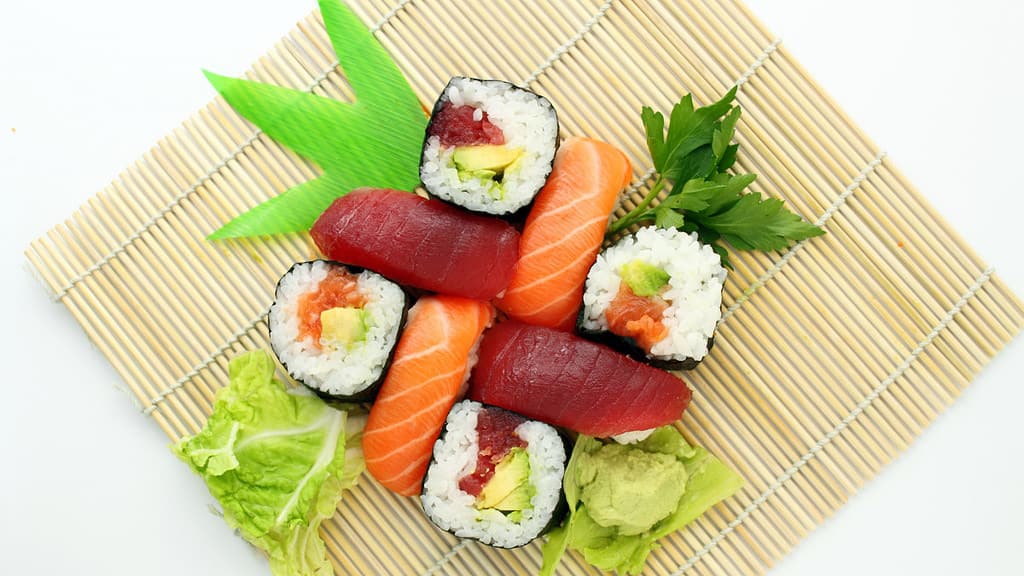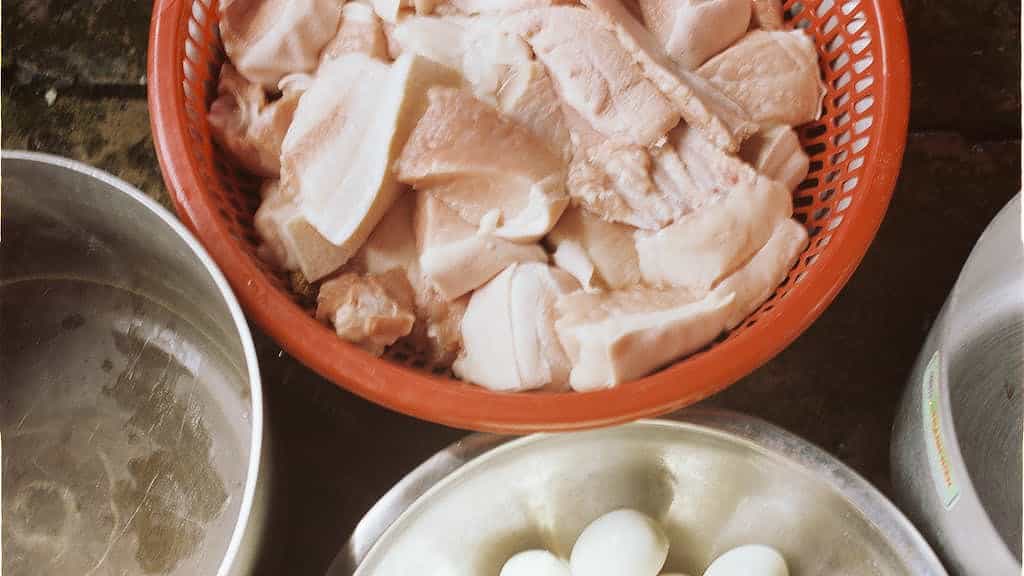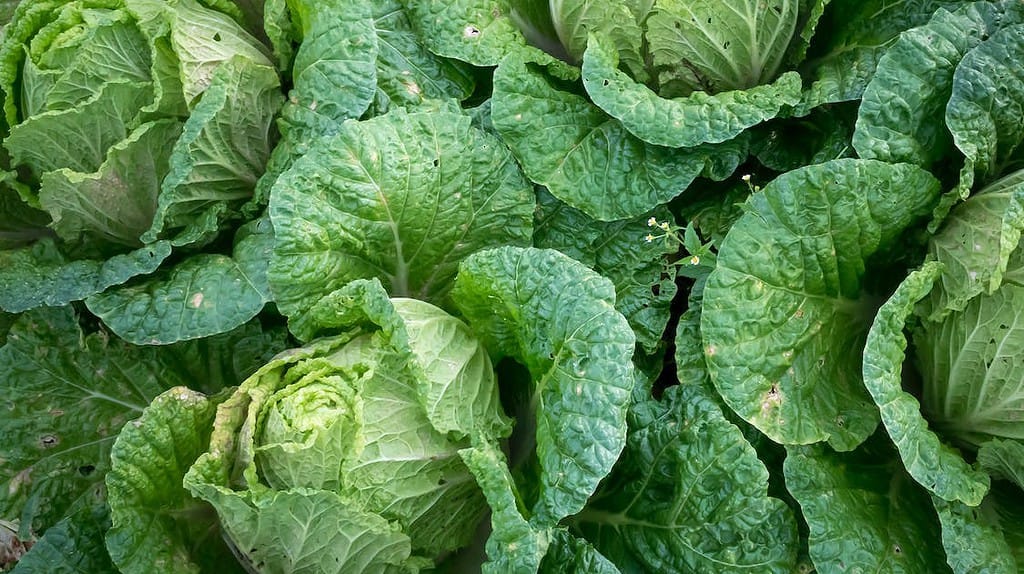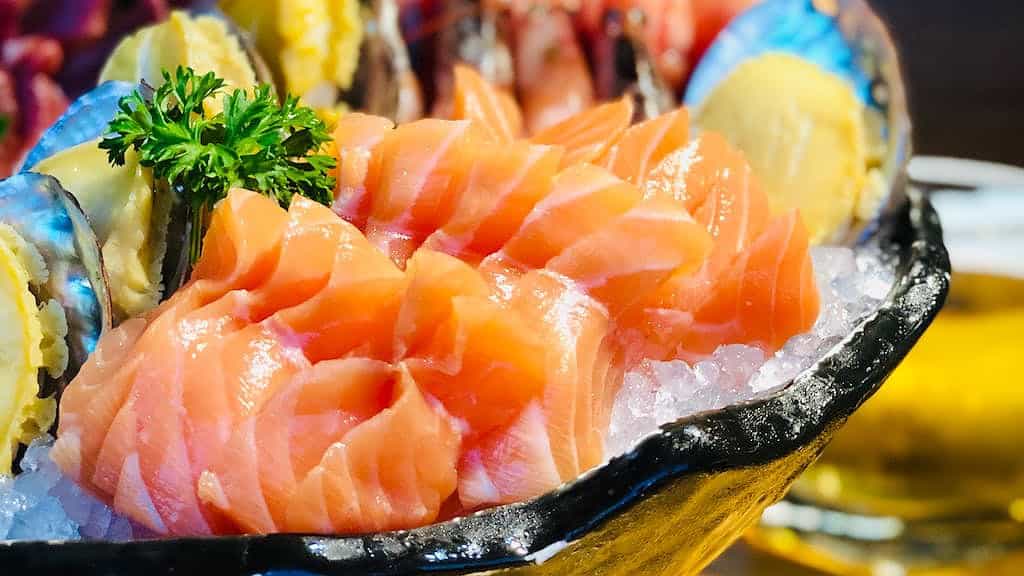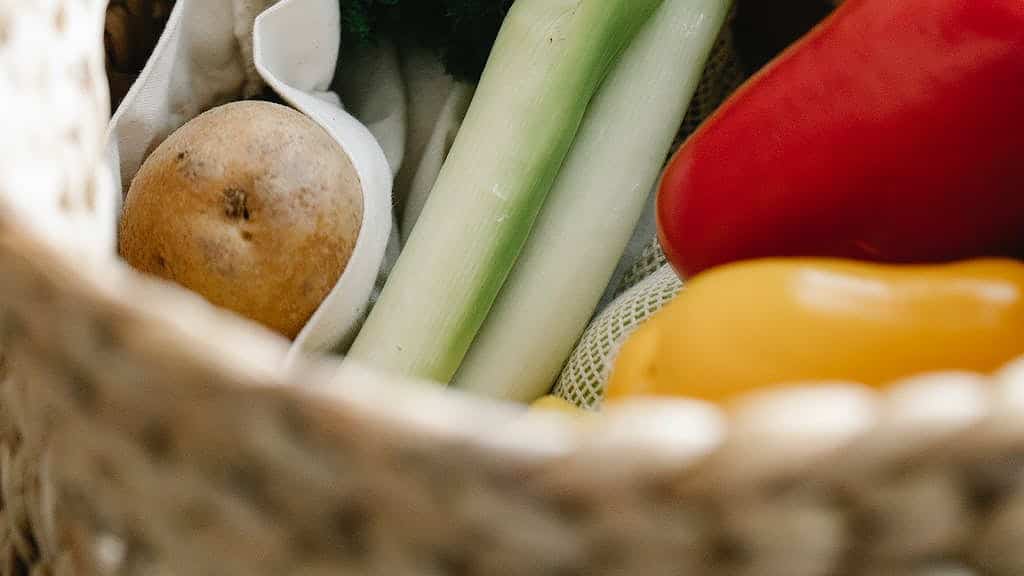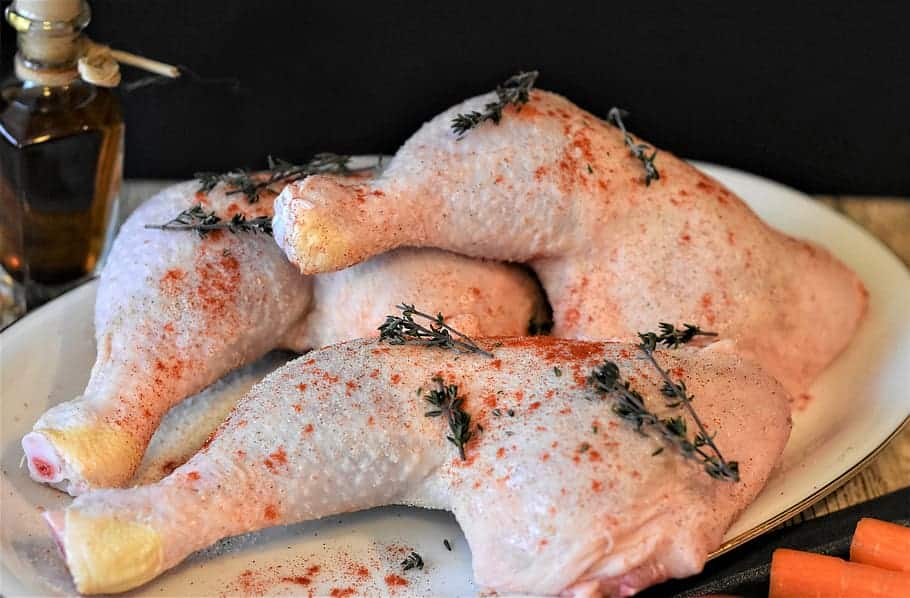Key Takeaways
- Raw sushi can potentially be harmful to dogs.
- Raw fish may contain parasites that can affect dogs’ health.
- Some ingredients in sushi, like avocado or wasabi, can be toxic to dogs.
- Rice in sushi can cause digestive issues for some dogs.
- Soy sauce, commonly used in sushi, contains high levels of sodium which is harmful to dogs.
- If you want to feed your dog fish, it is safer to cook it thoroughly rather than serving it raw.
- Always consult with a veterinarian before introducing any new food to your dog’s diet.
- Opt for dog-specific treats or cooked fish as a safer alternative to sushi.
- Ensure your dog has a balanced and nutritionally complete diet suitable for their needs.
- Monitoring your dog for any signs of digestive upset or adverse reactions is crucial.
Summary
Can dogs eat raw sushi? In short, no, dogs should not eat raw sushi. While dogs are able to consume certain types of fish, raw seafood poses a risk of bacterial and parasitic infections. However, the rest of the article delves into a comprehensive discussion around dogs’ dietary needs, potential health risks of feeding them raw sushi, and alternative options that are safe and beneficial for their overall wellbeing. It provides essential information for dog owners who want to ensure the health and safety of their furry companions when it comes to their diet.

Raw Sushi and Dogs: Can They Safely Consume It?
Raw sushi is often a favorite delicacy for many human beings, but what about our canine companions? While dogs are generally able to eat a variety of foods, it’s crucial to consider their specific dietary needs and potential health risks when it comes to sharing sushi with them. Dogs have different digestive systems and metabolisms compared to humans, so it’s important to be cautious.
Potential Risks of Feeding Raw Sushi to Dogs
Raw sushi, particularly raw fish, may contain harmful parasites and bacteria that can pose serious health risks to dogs. These include parasites like tapeworms and bacteria like Salmonella or Listeria. Consuming contaminated raw sushi can lead to symptoms such as vomiting, diarrhea, abdominal pain, and even more severe complications.
Specific Ingredients to Be Mindful Of
Some ingredients commonly found in sushi can be hazardous to dogs. For example, avocado, often present in sushi rolls, contains persin, a compound that can be toxic to dogs. Wasabi, another common sushi condiment, can cause irritation or even allergic reactions in dogs. It’s crucial to ensure that the sushi being shared with your furry friend does not contain any harmful components.
Alternatives to Raw Sushi for Dogs
Instead of feeding raw sushi to dogs, there are numerous healthier alternatives available. Cooked fish like salmon or white fish, free from seasoning and any potential bones, can be a safe and nutritious option. Additionally, vegetables such as cucumber or carrot sticks can serve as enjoyable snacks for dogs. Always consult with your veterinarian before introducing any new foods into your dog’s diet.
Importance of Balanced and Appropriate Diets for Dogs
Dogs require a balanced and appropriate diet to thrive and maintain good health. While small amounts of certain human foods can be safe for dogs to consume, it’s important to prioritize high-quality dog food as the primary source of nutrition. A dog’s diet should meet their specific nutritional needs and be free from any potential hazards or harmful substances.
Consulting with a Veterinarian
If you have any doubts or concerns about feeding raw sushi or any other unusual foods to your dog, it’s essential to consult with your veterinarian. They can provide personalized guidance based on your dog’s breed, size, age, and overall health. Your veterinarian will be the best resource for ensuring your dog’s diet remains safe, healthy, and suitable for their unique needs.
Recipes and Alternatives to raw sushi for dogs
While sushi can be a delicious and healthy meal for humans, it is not recommended to feed raw sushi to dogs. Raw fish can contain parasites and bacteria that may be harmful to dogs. Instead, there are plenty of other safe and nutritious options to consider for your furry friend:
- Steamed or boiled fish (without seasoning)
- Cooked chicken or turkey (boneless and skinless)
- Lean cuts of beef or pork (cooked and trimmed of fat)
- Vegetables like carrots, green beans, and sweet potatoes (cooked and mashed)
- Plain, unsalted peanut butter (in moderation)
FAQ: Can Dogs Eat Raw Sushi?
1. What is raw sushi?
Raw sushi refers to a traditional Japanese dish consisting of vinegared rice combined with various ingredients such as raw or cooked fish, seafood, and vegetables.
2. Is raw sushi safe for dogs to eat?
No, raw sushi is generally not safe for dogs to consume. There are several reasons for this:
3. Raw fish and seafood:
While some dogs may tolerate small amounts of raw fish or seafood, there is a risk of bacterial or parasitic infections, including salmonella or parasites like tapeworms. These can cause digestive issues, vomiting, diarrhea, and other health problems.
4. High mercury content:
Many types of fish used in sushi contain high levels of mercury, such as tuna and mackerel. Mercury can have toxic effects on a dog’s nervous system and lead to symptoms like muscle weakness, tremors, and even organ damage.
5. Seasonings and condiments:
Sushi often contains ingredients like soy sauce, wasabi, and sesame oil, which can be harmful to dogs. Soy sauce is high in sodium and can cause sodium ion poisoning, leading to symptoms like increased thirst, vomiting, diarrhea, seizures, and even death in severe cases. Wasabi and sesame oil can also cause gastrointestinal upset.
6. Raw rice:
While plain, cooked rice is safe for dogs to eat in moderation, raw rice can be problematic. Raw rice may expand and absorb fluids in a dog’s digestive system, potentially causing discomfort, bloating, and even intestinal blockage.
7. Can dogs eat any sushi ingredients?
Some ingredients used in sushi can be safe for dogs to consume in small amounts. For example:
- Cooked fish without seasoning or bones can be given to dogs as an occasional treat.
- Vegetables like cucumber or carrot can be given in small, cooked amounts, but avoid those seasoned with sauces or oils.
- Nori (seaweed) itself is generally safe for dogs, but ensure it is plain and does not contain any seasonings or added ingredients.
8. What should I do if my dog ate raw sushi?
If your dog accidentally consumes a small amount of raw sushi, monitor them closely for any signs of discomfort or illness. If symptoms like vomiting, diarrhea, or unusual behavior occur, contact your veterinarian for guidance.
9. What are safe alternatives to sushi for dogs?
There are plenty of safe and healthy alternatives you can offer your dog instead of raw sushi, including:
- Plain cooked fish or seafood without seasoning.
- Boiled or steamed vegetables like green beans, carrots, or sweet potatoes.
- Commercially-prepared dog treats or special meals designed for their dietary needs.
10. Can I give my dog any type of sushi?
While some ingredients used in sushi may be safe for dogs, it is always important to consult with your veterinarian before introducing any new foods to your dog’s diet. They can provide specific guidance based on your dog’s breed, health status, and individual dietary needs.
Conclusion
In conclusion, while it is generally safe for dogs to eat raw fish, feeding them raw sushi is not recommended due to the risk of potential health hazards. The raw fish used in sushi may contain parasites or bacteria that can be harmful to dogs. Additionally, sushi often contains ingredients like soy sauce, wasabi, or rice vinegar, which can be harmful or difficult for dogs to digest. If you want to feed your dog fish, it is best to cook it thoroughly to eliminate any potential risks. Always consult with your veterinarian before introducing any new foods into your dog’s diet to ensure their health and safety.
📚 Sources:
